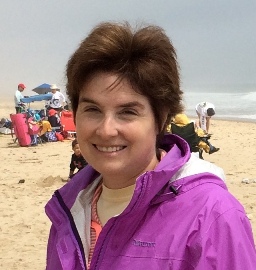From the day I started taking Gleevec pills to manage my chronic myeloid leukemia (CML), I understood I would depend on them for the rest of my life.
Or will I?
Things have changed more than a bit since I was diagnosed eight years ago and studies are showing there could be a drug cure for a disease thought to be incurable. The evidence is showing that this “treatment-free remission” isn’t likely to happen for everyone, but just the mere possibility was enough to send me cyber-scurrying for every scientific journal I could find.
I would be happy to not have to do an anti-nausea dance every night or worry that missing a pill will send my chromosomes into a frenzy. The latest research shows that some CML patients who’ve reached a deep long-standing remission may be able to stop taking Gleevec (imatinib) and have no recurrence. Two of the most well known CML medical experts have even said publicly they are optimistic. Woo-hoo!
But wait, this is my life we’re talking about. Research is just that – research. Here at The Leukemia & Lymphoma Society (LLS), we know that a promising compound has to weather years of study and numerous clinical trials before it emerges as a marketable drug. And in this case, it seems mind-boggling that someone would stop a drug that was hailed as a major medical breakthrough (making the cover of Time in 2001) and say, “I’ve had enough. Let’s see what happens.” Just because it worked for some people in French and Australian studies doesn’t necessarily mean it will do the same for ME.
However, it does make me wonder what it would take for me to be comfortable making that decision. Given that I’ve achieved a major molecular response (MMR) and stayed there for almost eight years, it’s likely I would qualify for a discontinuation study. But would I do it? That’s a good question.
Why I Should Say No
There are so many reasons I should say no.
I’ve been the picture of caution over most of my 54 years. I purchased a long-term care policy in my 30s and always check the “conservative” option on retirement plans. I like playing blackjack but never bet more than I can stand to lose. I take a sweater to the movies and keep granola bars and a fire extinguisher in my car -- just in case. You couldn’t pay me to go up on a space shuttle – or even to dangle upside down on an amusement park ride. I can’t help it. It’s in my DNA to constantly think “what if”?
Granted I’ve taken a few leaps -- repelling off cliffs in college, traveling with a backpack in rural Africa, and moving alone across the country -- but they didn’t seem like life or death decisions. I was held up by ropes on that mountainside and if I didn’t like Africa or my new job, I knew I could come home.
But stopping a life-saving medication? I know how fortunate I am to be where I am (eight years and counting!) and there’s a lot to lose by making the wrong decision. If I lose my response to Gleevec, it could be irreversible.
So would I do it? Maybe.
Why I Might Say Yes
I’m also a big believer in scientific evidence. Darwin’s theory of evolution? Yep. Global warming? You betcha. I won’t be one of the first to sign up, but if braver, more intrepid souls prove to do well, I am not too proud to follow in their footsteps.
The evidence is growing. Studies with catchy names like STIM, Euro-SKI, DESTINY, KIDS and TWISTER have shown there may indeed be a type of remission that is sustainable without treatment. One 72-year-old woman in Japan has gone eight years in a sustained deep molecular remission after stopping Gleevec.
Two independent studies – in Australia and France – both showed that around 40% of chronic phase CML patients with stable undetectable minimal residual disease (UMRD) on Gleevec can stop treatment and remain in remission. That’s great news, but what about the other 60 percent? It’s reassuring that all patients who relapsed responded again when the drug was reintroduced but it’s still not the guarantee I’m hoping for.
Treatment-free remission was a hot topic at this year’s American Society of Hematology conference. Several studies presented looked at which patients would be the best candidates to stop their tyrosine kinase inhibitor (TKI) and not experience a relapse. Depending on study and re-start criteria, the proportion of patients remaining in deep molecular remission seems to vary between 40 and 60% and there is yet no way to predict who can successfully stop.
The largest ongoing study -- European Stop Tyrosine Kinase Inhibitor study (EURO-SKI) -- doesn’t require participants to be in quite as deep a remission and therapy isn’t restarted as soon for those who relapse. An interim analysis shows that 56 percent of the participants remained therapy-free after stopping TKIs.
In the STOP-2G-TKI study, conducted by a French CML study group, 54 percent of the participants retained their response. While most relapses occurred within months, one person relapsed 24 months and another 37 months after stopping treatment.
It seems that the questions still to be answered are: how long does one have to be on the medications, how deep a MMR is required, and how soon do the medications need to be restarted in case of relapse?
Yikes! I Do Qualify
I recently checked out a new study that is now recruiting to see if I would qualify and, oh my, I think I would. The Life After Stopping Tyrosine Kinase Inhibitors Study (LAST) at the Medical College of Wisconsin is looking for CML patients who are on any of the four commercially available TKI drugs (imatinib, dasatinib, nilotinib, or bosutinib) and have had undetectable BCR-ABL by polymerase chain reaction (PCR) test for at least two years. Unlike earlier studies, this one even accepts people who have switched medications because of intolerance issues.
I reached out to the chief investigator to ask whether most people agree to take part and he said about half say no. It seems many have gotten used to taking a pill every day and are okay with any side effects. Some fear that going back to PCR tests every month and wondering if they need to restart their medication will only increase their anxiety.

How it feels to think about stopping the medication I credit with saving my life
The Possibilities are Encouraging
Neil Shah, M.D., of the University of California, San Francisco, says he’s aware of anecdotal cases of treatment discontinuation in which complete molecular remission had been maintained for more than 10 years and he encourages all potentially eligible patients to participate in these trials. Michael Mauro, M.D., of the Memorial Sloan Kettering Cancer Center, says treatment with a TKI can offer a “functional cure,” for some CML patients, who, after a period of treatment, may be able to discontinue therapy.
Additional studies are showing that a lower dose of Gleevec might be sufficient to maintain undetectable disease in some patients. A European study showed that 73 percent of 19 patients were able to reduce their dosage and do just fine and the DESTINY trial hopes to eventually use results to devise stopping strategies for newly diagnosed CML patients. Wouldn’t that be something?
Treatment-free remission is looking more and more like a possible option for certain CML patients – it’s just hard to know who. Unfortunately most people do relapse and have to go back to taking the drug, but at least no one is progressing to more advanced disease.
Experts agree that treatment should only be stopped within a clinical trial, and for people who struggle with side effects or the financial hardship of paying for a specialty medication, I can certainly see that as a desirable option.
Meanwhile, I plan to be watching closely. As a matter of fact, I find myself spending a lot more time these days wondering what my chances are of being part of that 40 percent.

If you're a CML survivor, we'd like to hear your thoughts on the possibility of treatment-free remission and/or taking part in a clinical trial. Write your comments below.
Learn more about participating in the LAST study or other clinical trials by calling LLS's Information Resource Center at (800) 955-4572.
LLS offers many resources on CML: contact an information specialist, participate in a CML discussion board or online chat, get a free booklet on CML, and watch a video about the role of PCR (polymerase chain reaction).
Lynne Smith is a CML survivor, LLS blogger and former journalist who is thankful for every post-diagnosis day. This blog is the fourth in a series. Read the others here.
Read past "Eight Years and Counting" blogs:
